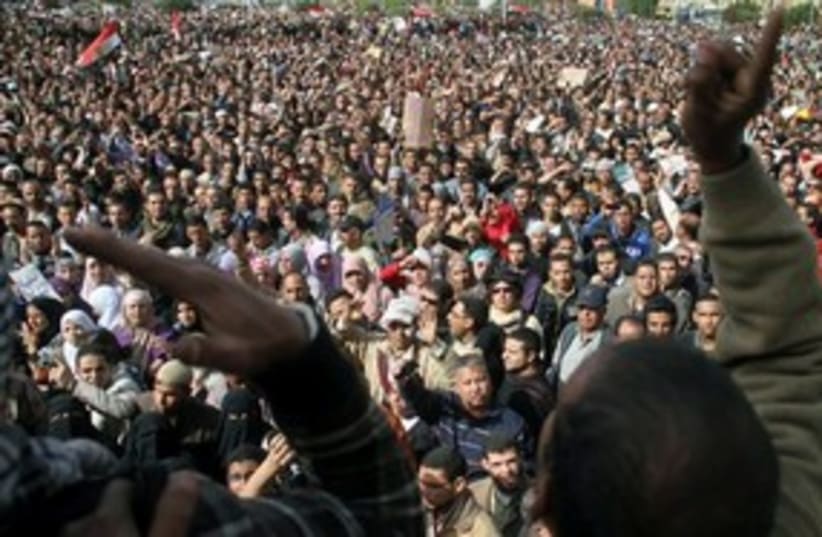RELATED:Egyptian unrest rocks the marketMubarak forms committees for reform in EgyptMaplecroft also predicts that Egypt is "unlikely to witness a rapid return to stability if President Mubarak does resign," and therefore, "Western governments and investors will remain nervous."The report says that the Muslim Brotherhood may have a prominent role in post-Mubarak Egypt, and that its "economic policies [may] cater more to social welfare, but are less friendly to foreign investment from the West and business in general."In addition, the report posits that the potential for violence makes Egypt a risky place for companies, with criminals exploiting the unrest. There may also be an increased risk of terrorism, which had previously been "offset over the years by the Mubarak regime's strong security apparatus and system of surveillance in mosques."Business and economic risksIn the business and economics section of the report, Maplecroft posits that a financial crisis is likely in Egypt, because the country's currency has weakened, as has confidence in the government's ability to bolster its banking sector. Investors have transferred hundreds of millions of US dollars out of the country since January 25, the report says, and the Central Bank will be forced to spend in order to keep the Egyptian pound stable, which could cause investors to panic. Weakened currency would also lead to inflation. In addition, political and economic instability will stunt growth, which can already be seen in the tourism sector.
Risk analysis report pessimistic about business in Egypt
Maplecroft predicts army may intervene, fears disruption of Suez Canal and Sumed pipeline to raise int'l shipping, oil prices.

RELATED:Egyptian unrest rocks the marketMubarak forms committees for reform in EgyptMaplecroft also predicts that Egypt is "unlikely to witness a rapid return to stability if President Mubarak does resign," and therefore, "Western governments and investors will remain nervous."The report says that the Muslim Brotherhood may have a prominent role in post-Mubarak Egypt, and that its "economic policies [may] cater more to social welfare, but are less friendly to foreign investment from the West and business in general."In addition, the report posits that the potential for violence makes Egypt a risky place for companies, with criminals exploiting the unrest. There may also be an increased risk of terrorism, which had previously been "offset over the years by the Mubarak regime's strong security apparatus and system of surveillance in mosques."Business and economic risksIn the business and economics section of the report, Maplecroft posits that a financial crisis is likely in Egypt, because the country's currency has weakened, as has confidence in the government's ability to bolster its banking sector. Investors have transferred hundreds of millions of US dollars out of the country since January 25, the report says, and the Central Bank will be forced to spend in order to keep the Egyptian pound stable, which could cause investors to panic. Weakened currency would also lead to inflation. In addition, political and economic instability will stunt growth, which can already be seen in the tourism sector.